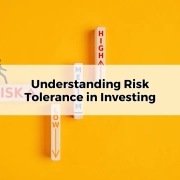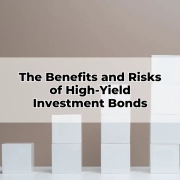How to Avoid Common Investment Mistakes
Table of Contents
ToggleInvesting is a powerful tool for building wealth and securing financial independence. However, even the most seasoned investors can make mistakes that hinder their financial success. Avoiding common investment pitfalls is crucial for achieving your long-term financial goals. This blog post explores the most frequent investment errors and offers strategies to help you steer clear of them. By understanding these mistakes and taking proactive measures, you can optimise your investment strategy and enhance your financial outcomes.
Failing to Set Clear Financial Goals
One of the most fundamental mistakes investors make is not setting clear financial goals. Without well-defined objectives, your investment strategy can lack direction and purpose. Whether you’re investing for retirement, a home purchase, or your children’s education, having specific goals helps guide your decisions and keeps you focused. Aligning your investments with both short- and long-term goals ensures that each investment serves a purpose, contributing to your overall financial plan and increasing the likelihood of achieving your desired outcomes.
Lack of Diversification
Diversification is a key principle in investing, yet many investors fail to spread their investments across different asset classes. Relying too heavily on a single type of investment or sector exposes your portfolio to higher risk. A well-diversified portfolio reduces the impact of poor performance in any one area and can enhance your potential for returns over time. By investing across various asset classes—such as shares, bonds, property, and cash—you can balance risk and reward, ensuring that your portfolio remains resilient in different market conditions.
Emotional Investing
Emotions can significantly influence investment decisions, often leading to poor outcomes. Fear and greed are two powerful emotions that can cause investors to make impulsive decisions—such as selling during market downturns or buying into market hype. Maintaining a rational approach is essential for long-term success. Strategies like setting clear investment rules, sticking to a plan, and avoiding reactionary decisions can help you stay focused and prevent emotions from dictating your investment strategy.
Chasing Past Performance
One of the most common mistakes is chasing past performance, assuming that what worked well before will continue to do so. However, past performance is not always indicative of future results. Markets are dynamic, and conditions can change rapidly. Instead of relying on historical returns, focus on a forward-looking analysis that considers current market trends, economic factors, and the potential for future growth. This approach allows you to make informed decisions that are more likely to align with your financial goals.
Ignoring Fees and Costs
Investment fees and costs can significantly erode your returns over time, yet many investors overlook them. High fees, whether from management fees, transaction costs, or hidden charges, can reduce the overall growth of your investment portfolio. Understanding the fee structure of your investment products is crucial. Opt for low-cost investment options where possible, and regularly review your portfolio to ensure that you are not paying more in fees than necessary. By keeping costs low, you can maximise your investment returns.
Timing the Market
Attempting to time the market—buying low and selling high—is a strategy that rarely works in practice. Market timing requires predicting short-term market movements, which is extremely difficult and often leads to missed opportunities. A more effective approach is to focus on a long-term investment horizon, where you stay invested through market cycles. By maintaining a disciplined investment strategy and avoiding the temptation to time the market, you can benefit from the overall upward trend of markets over time.
Neglecting Risk Management
Every investment carries some level of risk, and neglecting to manage this risk can lead to significant losses. Understanding the risks associated with each investment and how they fit into your overall portfolio is essential. Risk management strategies, such as diversification, asset allocation, and the use of stop-loss orders, can help mitigate potential losses. Regularly reviewing your risk tolerance and adjusting your portfolio accordingly ensures that you are not taking on more risk than you are comfortable with.
Overlooking the Power of Compound Interest
Compound interest is one of the most powerful tools for wealth accumulation, yet it is often overlooked. The earlier you start investing, the more time your money has to grow through compounding. Even small, consistent contributions can lead to substantial growth over time. To maximise the benefits of compound interest, start investing as early as possible, contribute regularly, and reinvest your earnings. This strategy can significantly enhance your long-term financial outcomes.
Inadequate Research and Due Diligence
Making investment decisions without thorough research is a common mistake that can lead to poor outcomes. Conducting adequate research and due diligence is essential for understanding the potential risks and rewards of an investment. This includes analysing the financial health of companies, understanding market conditions, and assessing the long-term potential of the investment. By taking the time to thoroughly research your investments, you can make informed decisions that align with your financial goals.
Not Rebalancing Your Portfolio
Over time, your investment portfolio can become unbalanced due to the varying performance of different assets. Failing to rebalance your portfolio can result in an asset allocation that no longer aligns with you risk tolerance or financial goals. Regularly reviewing and rebalancing your portfolio ensures that it remains aligned with your investment strategy. This process involves selling overperforming assets and reinvesting in underperforming ones, maintaining the desired level of diversification and risk exposure.
Failing to Seek Professional Advice
Many investors attempt to navigate the complex world of investing on their own, which can lead to costly mistakes. Consulting with a Toowoomba Financial Adviser can provide valuable insights and guidance tailored to your specific financial situation. A professional adviser can help you develop a comprehensive investment strategy, avoid common pitfalls, and stay on track to achieve your financial goals. Regular consultations with an adviser ensure that your investment plan remains aligned with your evolving needs and market conditions.
In conclusion, avoiding common investment mistakes is crucial for achieving long-term financial success. By setting clear financial goals, diversifying your portfolio, and maintaining a disciplined approach, you can optimise your investment strategy and build wealth over time. For those in Toowoomba, seeking the guidance of a knowledgeable financial adviser is an excellent way to enhance your investment outcomes and secure your financial future.









